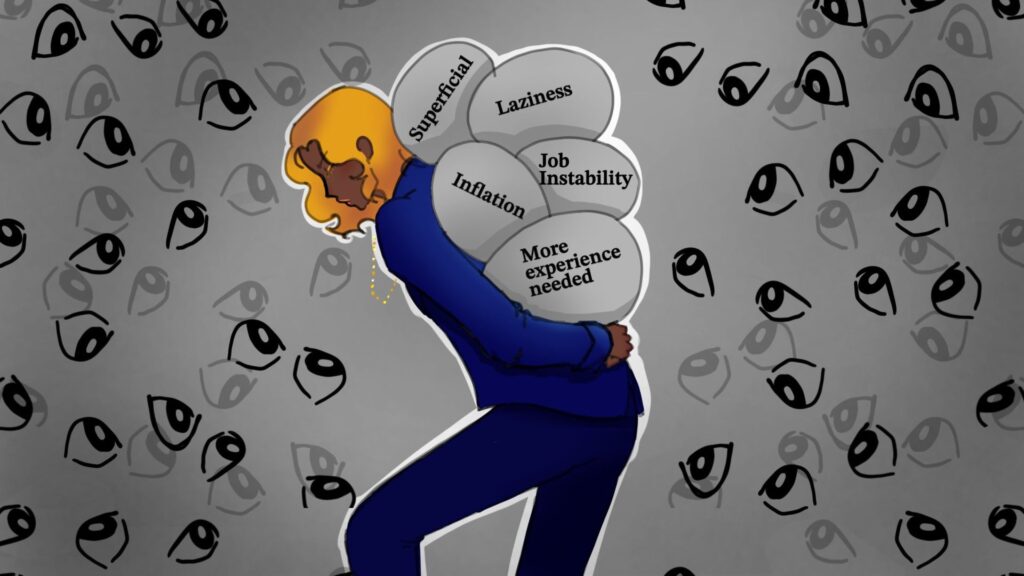Contrary To What Employers Believe, Gen Z Is Not Lazy
Gen Z is entering the workforce.
According to a report by the World Economic Forum, more than 25 percent of the workforce will be composed of Gen Z employees by 2025.
Now that the younger generation is stepping into the job landscape, workplace expectations are shifting.
The ideal occupation for Gen Zers prioritizes flexibility, well-being, decent pay, independence and social impact. Many of these values are regurgitated through company advertisements and motivational speeches given by billionaires.
But the belief that today’s young people are lazy and unprofessional has made some employers skeptical about hiring Gen Z adults.
A survey conducted by Resume Builder, an online platform that offers resources for job seekers, found that 36 percent of employers were biased against candidates between the ages of 18 and 27.
I disagree with the sentiment that Gen Z workers are “uncooperative” and don’t want to work. Young people today are facing challenges that older generations didn’t encounter, such as a worsening economy and vast competition.
One thing Gen Z has made clear is their distaste for working dead-end jobs. As a result, job-hopping and remote work have become popular.
A study by the American freelancing platform Upwork found that 52 percent of Gen Z job seekers are opting for freelance work.
Consequently, there is more office space for more corporate jobs, yet instead of leaving it for younger people, companies are decreasing staff.
Gen Z is also grappling with mental health struggles.
A survey conducted by McKinsey & Company, an American strategy and management consulting firm, reports that approximately 55 percent of 18-24 year olds were diagnosed with a mental illness or disorder in 2022.
For Gen Z college graduates, the COVID-19 pandemic also made it difficult to obtain work experience through internships and entry level positions.
In an opinion piece published in The Wall Street Journal, Nathan Biller, a graduate from Colgate University, expresses his frustration. “We finish college now with a diploma in hand, but lacking the real-world experience and credentials for which employers look,” Biller said.
It’s unclear what the solution to this problem is. Most of our generation is still in high school, so we are left to cope with the present state of affairs.
However, the job landscape is evolving and soon—we will be in charge. Companies should make an effort to engage Gen Z because they are the next generation of workers.
Plus, young people possess skills that can be assets to companies in our technology-driven society, such as tech-savviness, creativity and diversity.
The world will not stop moving because we disagree on how working should be. Young adults should have their concerns heard.

